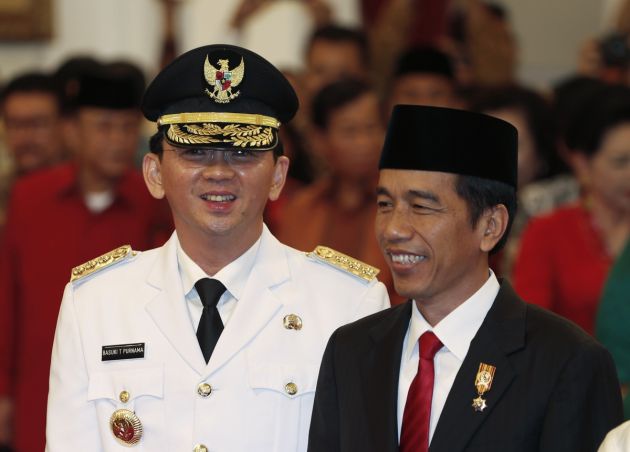Indonesian Christians take concerns about Islamists to President Widodo

Christians are concerned about rising intolerance in Indonesia and this is indicated in a significant increase in the number of religious freedom complaints recently reported by the country's National Commission on Human Rights.
There are signs of growing Muslism radicalization and the main perpetrators of this trend were government authorities with religious groups playing a part, the Malaysian Herald reported.
It cited a 59-page report, where the commission received 97 complaints about religious freedom violations in 2016, up from 87 in 2015.
These included cases of preventing the construction of houses of worship, which topped the list.
They were followed by instances of preventing the holding of religious activities. Other cases included religious discrimination, while many came from WestJava, Jakarta and North Sulawesi provinces.
Father Benny Susetyo, a senior researcher at Para Syndicate, said the Islamic Defenders Front continues to commit violence because no tough action is taken against them.
'IMMUNE TO THE LAWS'
"The group is immune to the laws," Susetyo told ucanews.com on Jan. 17. "This is dangerous. The group trying to impose supremacy through intolerance will disunite
Excessive intolerance and violence committed by Indonesia's notorious Islamic Defenders Front poses a serious threat to national unity, ucanews, a Catholic news agency said, quoting Christian leaders.
They said they had voiced their concerns during a meeting with Indonesian President Joko Widodo on Jan. 18.
Since its establishment in August 1998, following the fall of then president Muhammad Suharto, the Islamist group estimated at more than 7 million strong, has committed a series of violent, acts targeting Christians, churches, Ahmadiya followers and moderate Muslims, they said.
Late last year the Islamist group staged a series of mass rallies in Jakarta to demand the city's Christian governor, Basuki Tjahaja Purnama, be put to death for blasphemy.
Susetyo asserted that intolerance in the country has been increasing for a decade.
"Now moderate groups tend to be silent, but if they ignore intolerance and let it happen, intolerant actors can take advantage of the situation," he said.
He also acknowledged that an alarming trend of revenge has started to surface in society.
He urged the State to show its power and deal with the issue by acting firm against those who violate religious freedom, he added.
"It is time for us to speak out against intolerance," Father Susetyo urged in responding to the human rights commission's 2016 Annual Report on Religious Freedom released on Jan. 10.
Human Rights Watch says in its 2017 world report, "President Joko "Jokowi" Widodo's rhetorical support for human rights has yet to translate into meaningful policy initiatives to address the country's serious rights problems.
"In 2016, Jokowi notably failed to speak out against or otherwise address discriminatory statements and policies issued by senior government and military officials that have fueled violations of the rightds of religious minorities and the country's lesbian, gay, bisexual and transgender (LGBT) population."
The report says religious minorities in Indonesia continue to face discriminatory regulations and violent attacks by Islamist militant groups adding that impunity for the security forces in the provinces of Papua and West Papua remains a serious problem.